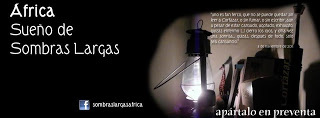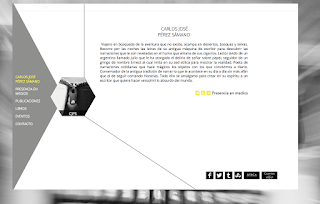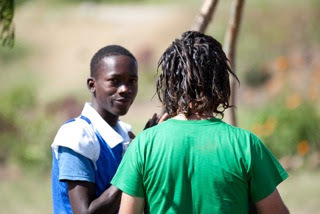Carlos José Pérez Sámano's Blog
January 1, 2019
2019 Book Recommendations
Hello dear readers!
If you want PERSONALIZED book recommendations, feel free to ask me in the "Ask the author" section. Give me three books that you already like and I will try to give you something according to that.
If you want PERSONALIZED book recommendations, feel free to ask me in the "Ask the author" section. Give me three books that you already like and I will try to give you something according to that.
Published on January 01, 2019 16:51
•
Tags:
2019, book, new-year, recommendation, titles
July 30, 2018
Nuevo sitio web, pronto!
Después de que el sitio web www.elmejorescritordelmundo.com sirviera durante más de 6 años para conectarme con mis lectores. Ahora les comparto emocionado que abriré un nuevo sitio web. www.perezsamano.com será un sitio mucho más completo.
Para empezar, será un sitio web en inglés y español. Automáticamente se abrirá en tu idioma preferido, pero también podrás cambiarlo manualmente.
Contendrá todos mis libros, así como recomendaciones para escribir y publicar.
Tendrá también una sección con las...
Para empezar, será un sitio web en inglés y español. Automáticamente se abrirá en tu idioma preferido, pero también podrás cambiarlo manualmente.
Contendrá todos mis libros, así como recomendaciones para escribir y publicar.
Tendrá también una sección con las...
Published on July 30, 2018 11:43
July 26, 2018
The Book of Strange New Things Review
I started reading The Book of Strange New Things (Faber, 2014) without knowing this week’s topic in Deepening Fiction (Nyren and Stone, 2005). One of my first thoughts was: “I feel this as if it was my own experience”. I, too, have prayed at Heathrow International Airport Chapel before going to a Christian mission in Africa without having an end date, so I felt directly identified with Peter Leigh, the protagonist. But one of the most important thoughts that I had was: “I should do this. Write about what I know. Go back to my own memories to share from there. I don't need to ‘invent the black thread’ of my story.” The surprise came when I found that the topic of Deepening Fiction was precisely “Discovering the Story Subject: the Matter of the Subject”. That chapter relates the difference between theme and subject, and in general: what do we write about.
In Mexico inventar el hilo negro is when you create something from scratch, thinking that you are finding something new, usually feeling that it is the ultimate truth , only to discover later on that someone else did it before, that what you did already existed.
When I was in the airport with Peter reading the Visitors Book (26) I remembered doing the same thing about seven years ago. “How could have Faber created such a realistic scene in the book?”
After reading the first section of “Discovering the Story’s Subject” chapter of Deepening Fiction, (114) I realized that that’s what it’s all about, to not be afraid of sharing stories from your own history, details that are in my memory. To find the appropriate distance from them and just present them from and for my story. This was a major epiphany moment in the whole semester. I don't need to tell the most tragic, successful or recent experience. We don't necessarily need to tell “The Story” that we want to share with the world, but those little observations that are recorded in our memory, those small details of life that remain in ourselves and made us have a deep understanding of life, and from there, we will show subtly our personal, let’s say, cosmogony.
Nyren and Stone say that when we start writing “the most familiar subject matter may be our current experiences, which feel both urgent and authentic” (114) but the risk of this close approach in our first tries is that since the matters are so personal and close to the writer, it will be hard to make it interesting for others. But the discovering process of our matter can continue and we can go to the other extreme, trying to explore something completely different from us, making our stories feel forced (114).
What Michael Faber had experienced in his personal life with Christian missionaries, nurses, cats, or harvesting is not irrelevant. Maybe he used some of his previous experience as a nurse, back in Sidney, his personal learnings on migration, or all his different experiences in marriages to build his novel (Michel Faber: 'I would have been a different writer without my wife’, The Guardian, 2016), but what is more important, is the vision of humanity that he is trying to share within his work.
Under the story of a failed interplanetary mission, Faber is criticizing the fall of the empire of human universalization. Using non-realistic fiction is possible to tune our attention to “domestic ordinariness” (Stone, Nyren 128). “The strangeness of the situational subject matter provides a vehicle for the psychological subject matter rather than displacing it” (128). If we analyze the transformation of Joshua from the cat sleeping peacefully (17) to “Joshua is becoming VERY neurotic” (314), until he is put down after the accident or his leg and the torture of the children (393), we can see the fatality of destiny, the tragedy.
Milan Kundera shares in his Dialogue on The Art of the Novel that “the code of this or that characters is made up of certain key words” (qtd. in Stone, 117). If we had to find Peter’s code we surely had to incorporate words such as: destiny, compassion, sacrifice, community, and truth.
As I mentioned, this chapter was really useful to approach to my work. I have explored both extremes of distance to the subject matter of my writing. My fiction had been so far, artificial and plastic, characters built of rock and wood, and my poetry so personal, intimate and prosaic, that I feel it is time to start looking for something more balanced. Yesterday night I had a call with a friend that writes historic fiction. He gave me really great advice: “Take any idea from any book, something that you want to explore, but don't do the exploration by yourself. Let your characters do that exploration for you. You will learn a lot from them”. And I think doing that, I will little by little start finding the themes that I want to write about, or maybe I have the themes,
In Mexico inventar el hilo negro is when you create something from scratch, thinking that you are finding something new, usually feeling that it is the ultimate truth , only to discover later on that someone else did it before, that what you did already existed.
When I was in the airport with Peter reading the Visitors Book (26) I remembered doing the same thing about seven years ago. “How could have Faber created such a realistic scene in the book?”
After reading the first section of “Discovering the Story’s Subject” chapter of Deepening Fiction, (114) I realized that that’s what it’s all about, to not be afraid of sharing stories from your own history, details that are in my memory. To find the appropriate distance from them and just present them from and for my story. This was a major epiphany moment in the whole semester. I don't need to tell the most tragic, successful or recent experience. We don't necessarily need to tell “The Story” that we want to share with the world, but those little observations that are recorded in our memory, those small details of life that remain in ourselves and made us have a deep understanding of life, and from there, we will show subtly our personal, let’s say, cosmogony.
Nyren and Stone say that when we start writing “the most familiar subject matter may be our current experiences, which feel both urgent and authentic” (114) but the risk of this close approach in our first tries is that since the matters are so personal and close to the writer, it will be hard to make it interesting for others. But the discovering process of our matter can continue and we can go to the other extreme, trying to explore something completely different from us, making our stories feel forced (114).
What Michael Faber had experienced in his personal life with Christian missionaries, nurses, cats, or harvesting is not irrelevant. Maybe he used some of his previous experience as a nurse, back in Sidney, his personal learnings on migration, or all his different experiences in marriages to build his novel (Michel Faber: 'I would have been a different writer without my wife’, The Guardian, 2016), but what is more important, is the vision of humanity that he is trying to share within his work.
Under the story of a failed interplanetary mission, Faber is criticizing the fall of the empire of human universalization. Using non-realistic fiction is possible to tune our attention to “domestic ordinariness” (Stone, Nyren 128). “The strangeness of the situational subject matter provides a vehicle for the psychological subject matter rather than displacing it” (128). If we analyze the transformation of Joshua from the cat sleeping peacefully (17) to “Joshua is becoming VERY neurotic” (314), until he is put down after the accident or his leg and the torture of the children (393), we can see the fatality of destiny, the tragedy.
Milan Kundera shares in his Dialogue on The Art of the Novel that “the code of this or that characters is made up of certain key words” (qtd. in Stone, 117). If we had to find Peter’s code we surely had to incorporate words such as: destiny, compassion, sacrifice, community, and truth.
As I mentioned, this chapter was really useful to approach to my work. I have explored both extremes of distance to the subject matter of my writing. My fiction had been so far, artificial and plastic, characters built of rock and wood, and my poetry so personal, intimate and prosaic, that I feel it is time to start looking for something more balanced. Yesterday night I had a call with a friend that writes historic fiction. He gave me really great advice: “Take any idea from any book, something that you want to explore, but don't do the exploration by yourself. Let your characters do that exploration for you. You will learn a lot from them”. And I think doing that, I will little by little start finding the themes that I want to write about, or maybe I have the themes,
Published on July 26, 2018 21:28
May 26, 2015
Nos vemos allá
Published on May 26, 2015 11:47
February 10, 2013
Cantan los pájaros diferente. (o nostalgia de domingo)
 Siempre he sentido que los domingos tienen un ritmo diferente. Más lento, más sublime, más profundo. Y hoy descubrí que hasta los pájaros cantan diferente este día. Andaba en bici rumbo al Blockbuster, para rentarle a mi mamá la película de "Comer, rezar y amar" y no estuvo. Pero de regreso, en los cedros del colegio Argos, escuché a las muchas urracas que ya cuando se acerca la tarde, van despidiéndose del sol y van acomodándose en las ramas para dormir. Y cantaban diferente. O tal vez influ...
Siempre he sentido que los domingos tienen un ritmo diferente. Más lento, más sublime, más profundo. Y hoy descubrí que hasta los pájaros cantan diferente este día. Andaba en bici rumbo al Blockbuster, para rentarle a mi mamá la película de "Comer, rezar y amar" y no estuvo. Pero de regreso, en los cedros del colegio Argos, escuché a las muchas urracas que ya cuando se acerca la tarde, van despidiéndose del sol y van acomodándose en las ramas para dormir. Y cantaban diferente. O tal vez influ...
Published on February 10, 2013 16:52
February 1, 2013
Abue
Hoy te moriste, Abuelita.
Después de tantas veces que entre todos creíamos que ya te ibas.
Después de tantas veces que nos despedimos de ti.
Después de tantas, y tantas veces que te pedimos la bendición, como si fuera la última.
Hoy, porque así tú lo decidiste, porque así lo decidió Dios, o porque así lo decidió tu cuerpo, tan fuerte, tan resistente y tu alma tan indomable, tan soberbia, tan incorruptible.
Hoy te fuiste, porque ya no era necesario un solo día más, un solo instante más, un solo mom...
Después de tantas veces que entre todos creíamos que ya te ibas.
Después de tantas veces que nos despedimos de ti.
Después de tantas, y tantas veces que te pedimos la bendición, como si fuera la última.
Hoy, porque así tú lo decidiste, porque así lo decidió Dios, o porque así lo decidió tu cuerpo, tan fuerte, tan resistente y tu alma tan indomable, tan soberbia, tan incorruptible.
Hoy te fuiste, porque ya no era necesario un solo día más, un solo instante más, un solo mom...
Published on February 01, 2013 23:32
January 21, 2013
Ass back home
 ¡Por fin!
¡Por fin!Llevo muchos días, semanas y meses pensando: "debería retomar mi blog", "debería volver a escribir como antes lo hacía, compartiendo lo que voy viviendo, lo que voy pensando, o lo que se me va ocurriendo". Y lo que pasa es que quise hacer de este blog, un medio más para promocionar mi libro (que por cierto se está vendiendo muy bien, y ya le estoy haciendo campaña en diferentes medios, me han entrevistado en tele, en radio, en periódicos, etc) pero ese no es el origen del blog....
Published on January 21, 2013 14:59
October 2, 2012
Instantaneas
Published on October 02, 2012 12:58
September 11, 2012
Llegar a donde nadie
Published on September 11, 2012 12:40
August 28, 2012
Cansancio y Cortázar
 (8 nov 2011)
(8 nov 2011)Me siento cansado, muy cansado, el cuerpo pesado, me esfuerzo por mover mi brazo...
Me conozco y sé que a veces puedo ser medio exagerado y tal vez hasta un poco hipocondríaco. Tal vez el hecho de que mi compañera se haya enfermado me tenga predispuesto a pensar que yo también puedo estarlo en estos momentos.
Pero estoy muy, muy cansado (puede ser por el viaje), pero ¿el dolor en las sienes… en los dientes?
Cansado…
Mejor dormir, ya estamos de vuelta en nuestra casa, y mañana...
Published on August 28, 2012 10:38






